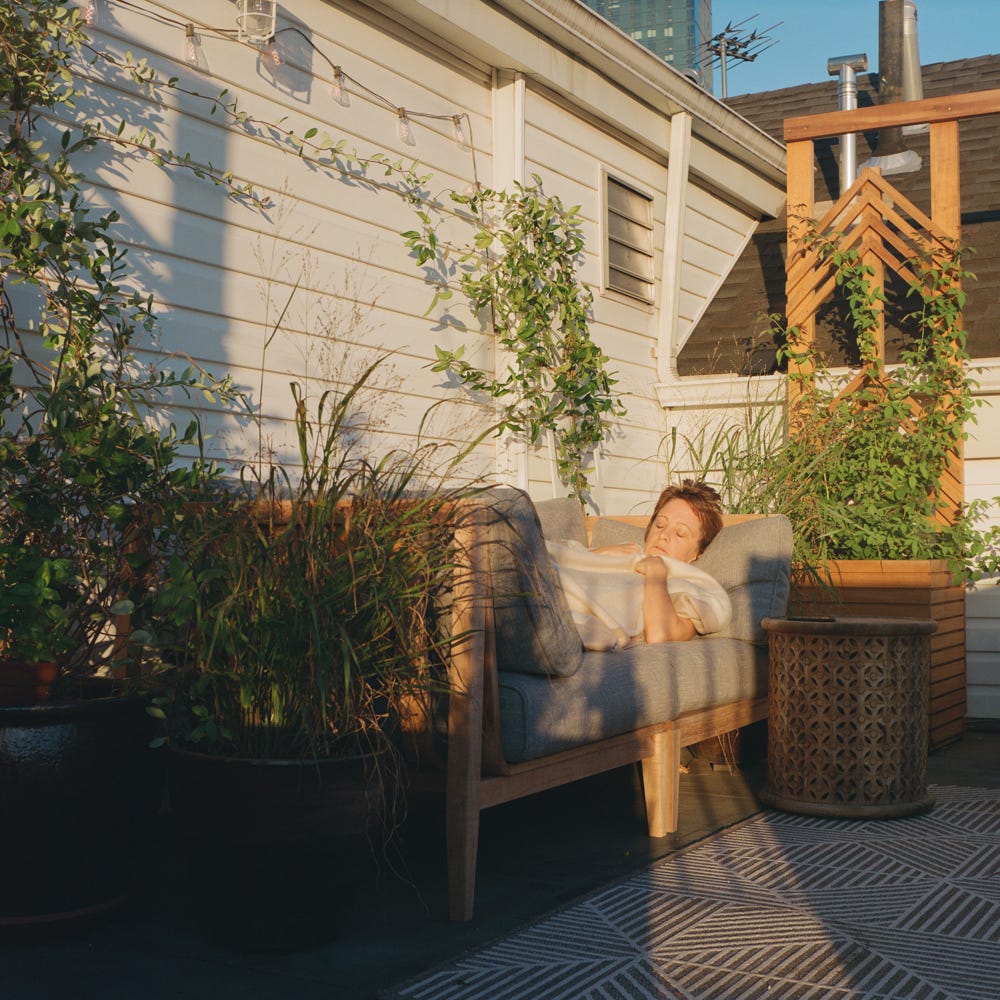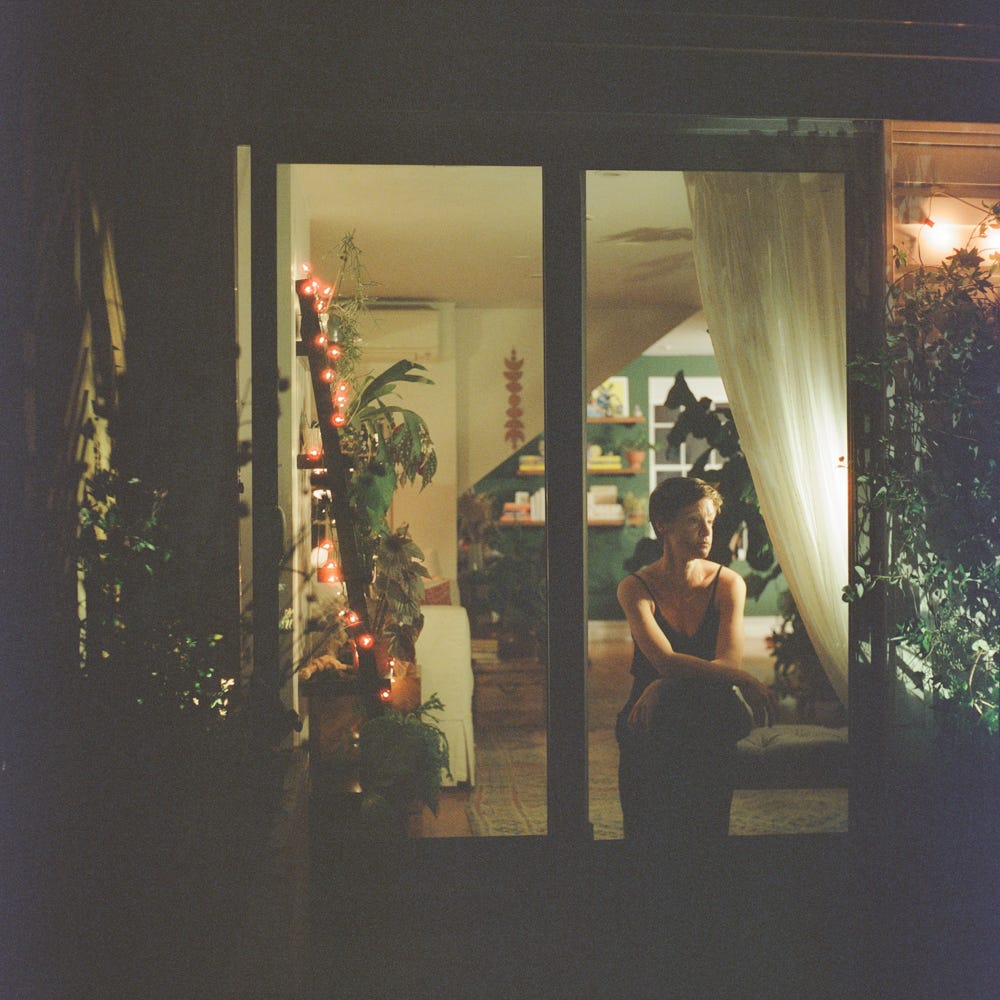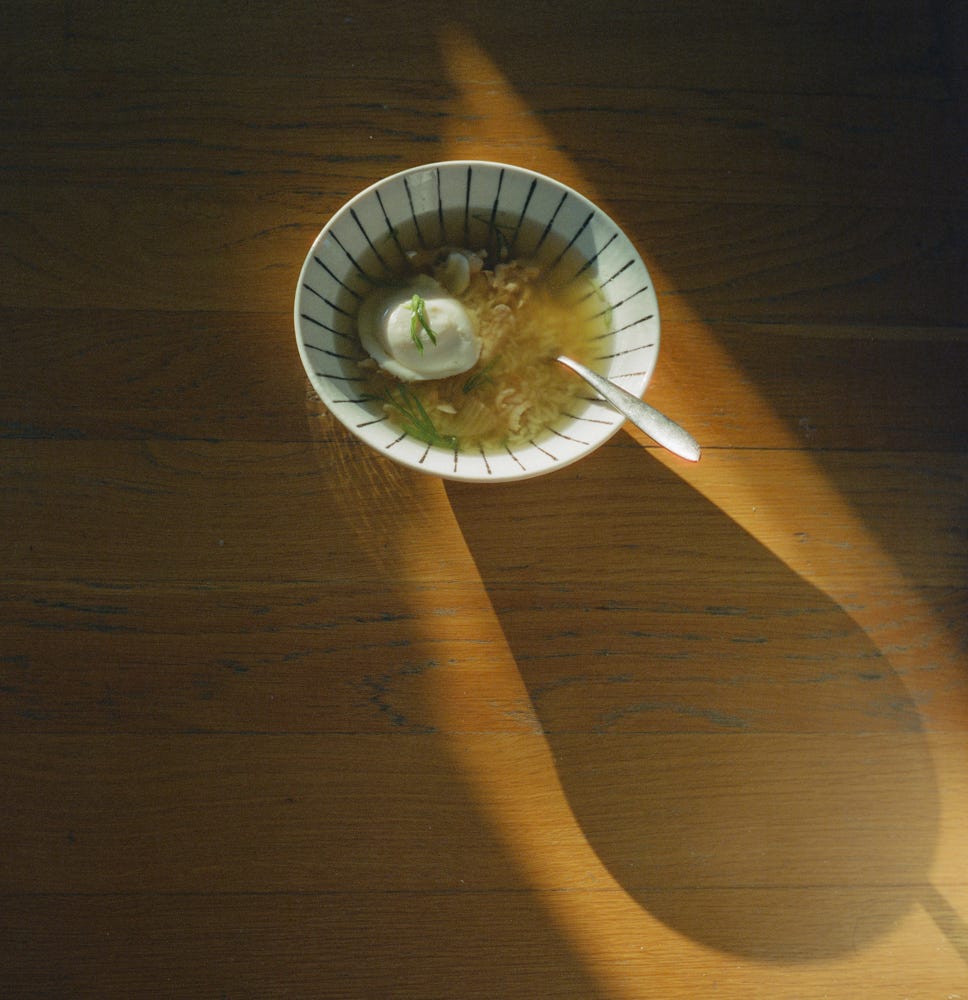A True Life Built is a living photo essay on starting over and building a truer life. It’s for anyone, at any age, who is finding the courage to begin again. Subscribe for free weekly posts.
I left my home and husband in Nairobi the week Covid arrived in Kenya, in March of 2020. Two and a half years later, the week I was finally meant to return to Nairobi for work, I caught Covid for the first time.
I don’t think it’s a coincidence that my immune system collapsed. I don’t think it’s a mistake that my body threw in my face what my mind has struggled for months to accept: It’s not healthy for me to return to Nairobi.
“There’s no going back,” my body said. “Sit there and think about that.” And so, for the next ten miserable days, with nothing else to do but sit with my thoughts, I did.
I thought about another time I’d been forced to lie on the couch, a decade before, when I exploded a glass pitcher while making iced tea and took the skin off both legs. (Life lesson: never pour boiling water in un-tempered glass).
I was married then, and by chance my husband was home, and after I screamed bloody murder I hopped in the bathtub and started managing the situation. Old first aid lessons flooded back—cool water for burns, hold cuts above your heart—and I snapped out instructions: Fill ice packs, grab my insurance card, find the nearest urgent care.
Within an hour, I was stitched up. What strikes me now, looking back, was how competent I was in managing my own crisis, and yet how much I took for granted that I had someone there with me. I could have managed alone—but I didn’t have to.
That’s the thing about “in sickness and health”: when you’re curled up on the couch in pain, someone is obligated to care. It doesn’t mean that they’ll be a good nurse, that you won’t hobble to the pharmacy to pick up your own Percocet, trailing bandages like a miserable mummy. But at the minimum, there’s someone to take you to the doctor and home again, a safety net of obligation that ensures you’re not sick alone.
Single life is woven of looser ties, a web of people with their own cares and commitments that are not bound so tightly to yours. These threads of friendship must be regularly renewed by mutual choice, and can fray easily by lack of use. Being sick while single felt vulnerable in a new way, an unexpected test of my social safety net. Who would I call when I was sick? Would my friends show up?
As it turned out, they would—and they did, again and again.
Last February, newly divorced and still reeling, I found myself in urgent care for the second time in my life. It was midnight in Portland, and I’d just cooked a gourmet feast for my friend’s 50th birthday. After we polished off the chocolate cake, I took the birthday girl aside and whispered: “I hate to break up the party, but I need a doctor.”
I had a freak infection, excruciating but easily treated, and it couldn’t wait until morning. After a kind nurse sorted me out and left me to rest on the exam table, a single thought crashed over me: the last time I was in urgent care, I was married. I started sobbing—not just because it hurt, but because I was alone.
Now, nobody was obligated to care, nobody was bound to sit in the waiting room and take me home. But, of course, Eileen was waiting, even though it was the middle of the night, even though it was her 50th birthday party. When I stumbled out into the deserted lobby, red-eyed, she gave me a huge hug and I started sobbing all over again.
“Of course I’m here,” she said, holding me, “I would never let you go to urgent care alone.”
As a society, we see romantic relationships as the holy grail: the union that’s supposed to make you feel secure and complete. The nuclear family is our preferred social unit. We feed our children fairytales of falling in love, of partnership as the path to happily ever after.
We don’t tell many stories of friendship, of caring for people beyond your inner circle. In my secular city life, we’ve lost the community ties of older generations—the church groups, the civic clubs—but have not built much in its place. Our lives have atomized, turned inward. I love my hot yoga classes, but they don’t send soup when I’m sick.
But you know who does send soup? My friends. It wasn’t until Covid flattened me that I understood how much that matters.
Last week, when I was shaking on the couch with fever, a friend sent dinner to my door: a clear rice soup with a poached egg, and a few other dishes “in case I was hungry.” I ate every bite. I hadn’t realized how ravenous I was, not just for hot food but for someone to say: “You’re not well, let me worry about dinner.”
The next day, she sent dinner again, this time a Japanese-Jewish ramen with matzoh balls, the best comfort food of two cultures. It was more comforting that I could have possibly imagined.
Another friend, who I hadn’t seen in five years, called to check in. “I know you’re sick and single,” she said, “and that will feel different. I wish I lived closer, and I want to make sure you have people checking that you’re still breathing.” It was a quick call, maybe ten minutes, but it was stunningly reassuring. It said: “I see you, and even though you are physically isolated, you are not alone.”
“Yes,” I told her, “I do have people checking in.” Friends texted every day and sent book recommendations. A neighbor dropped off Covid tests. A woman from my plant group, who I’ve only ever texted, dropped off Tylenol when I told her I was out.
I was sick and solo for the first time in my adult life, and my safety net is now woven of looser ties, but it held me when I needed support. I no longer have a partner, but I have a community—friends near and far, even total strangers—who stepped up to care.
We don’t talk enough about how much this matters. I think we need to tell our children, and ourselves, a different type of story, one with fewer glass slippers and more examples of loving friends. Whether or not you have a partner, a rich life takes a wider community, with ties formed by choice and nourished by small kindnesses.
We need more stories where the heroes send soup.
One of the unexpected joys of starting over has been hearing from others on similar journeys. If something resonates with you, I’d love for you to leave a comment, drop me an email or share a post with a friend!
Liz is a writer and photographer based in Brooklyn. She’s spent her career finding the right words for others and now she’s finding her own.








Yes! If I even think about how much my friends supported me when I was getting divorced I break down in tears!! Friendships are so important and this is why I want to start a class about how to make friends as an adult!